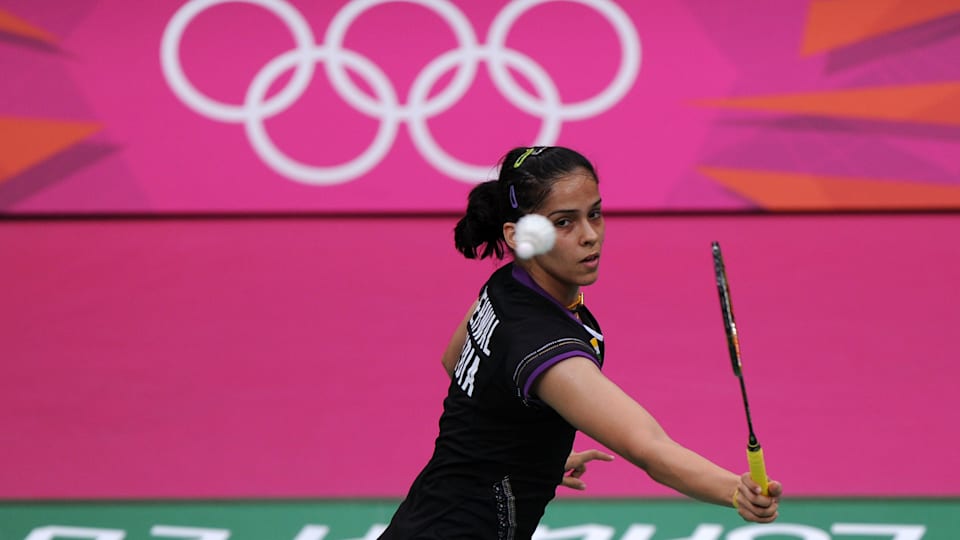India at Olympics 2012: A fairytale outing in London
The largest Indian contingent till that point recorded India's best Olympic performance. The tally was later bettered at Tokyo 2020.

The 2012 Olympic Games in London was India’s most successful Olympic outing ever until Tokyo 2020. After heading into London with 83 competitors, India won six Olympic medals, including two silver and four bronze.
That tally convincingly overtook India’s previous best haul of three medals won at the previous edition of the summer Games in Beijing 2008.
Indian medal winners at London 2012 Olympics
After Abhinav Bindra’s stupendous gold medal-winning performance in the previous edition in Beijing 2008, it was only fitting that India’s shooting contingent led the way in 2012.
Gagan Narang, who was the first Indian to qualify for the London Olympics also became the first to open India's medal tally, with a bronze in the 10m air rifle.
After that, it was fellow marksman Vijay Kumar who bagged India's first silver of the tournament, in the 25m rapid fire pistol.
The focus then shifted to badminton. After having made it to the quarter-final stage in the 2008 edition, 2012 saw the third-seeded Saina Nehwal give her country its first-ever women’s singles medal, a bronze after China’s Wang Xin pulled out of the match with an injury.
Saina Nehwal’s pioneering achievement sparked a renewed interest in badminton among Indians and made it one of the most followed sports in the country, with PV Sindhu taking it up a notch in the following edition of the Olympics by scoring a silver medal.
Like Abhinav Bindra in shooting, Vijender Singh got the ball rolling for Indian boxing with a bronze in 2008, and in 2012, Mary Kom, who became world boxing champion for the fifth time that year, plonked the fourth medal down in India’s kitty.
After making it all the way to the semi-finals, Mary Kom finally fell to Nicola Adams of Great Britain in the first-ever women’s flyweight event. Adams would go on to claim gold.
Then it was time for India’s wrestlers to shine, as first, Yogeshwar Dutt defeated North Korea’s Jong Myong Ri to secure a third-place finish in the men’s freestyle 60kg category, and rack up India’s fifth medal of the event.
Then, it was down to flag-bearer of the Indian contingent, Sushil Kumar, from whom a lot was expected after he had clinched the bronze medal in the prior edition of the Olympics in Beijing 2008.
He lived up to those expectations by giving India its second silver medal of the tournament, creating history in the process by becoming the first Indian to win two individual Olympic medals.
2012 Olympics medal table: India
India's near-misses at Olympics 2012
Joydeep Karmakar almost joined his fellow marksmen Gagan Narang and Vijay Kumar as medallists, but with a fourth-place finish in the 50m Rifle Prone event, the Arjuna Award winner narrowly missed out on bronze, which went to Slovenia’s Rajmond Debevec instead.
Coming into the finals with a score of 595, Karmakar was tied with four others while Debevec, with 596 points, was third.
Even though Joydeep Karmakar was in the 10s in his next 10 shots, that single-point advantage made the difference in Debevec’s favour.
Then there was 19-year-old Indian wrestler Amit Kumar, who, after making it to the quarter-finals, came up short in the tie-break, losing the draw in both periods.
Another Indian talent to come mighty close to a medal at London 2012 was Vijender Singh.
Coming into the Games on the back of his bronze medal show at Beijing 2008 and the manner in which Vijender Singh started his campaign, it looked certain that the Indian could go the distance.
But a quarter-final loss to Abbos Atoev of Uzbekistan meant Vijender Singh had to return home early from London 2012.
How India's big names fared at London 2012
While India did ensure that they enjoyed their best-ever outing at the Olympics in 2012, their campaign also saw some of the established names giving their best but were unable to climb on the podium.
Coming into London 2012 as the top-ranked archer in the world, Deepika Kumari was expected to challenge for a podium spot.
But at the iconic Lord’s ground, the Indian archer couldn’t muster enough although she put up a respectable fight.
In the individual event, Deepika Kumari bowed out in the opening round, losing to Great Britain's Amy Oliver while the women’s team lost to Denmark in the Round of 16 by a solitary point to end their run at the Games.
The story was no different for the poster boy of Indian shooting, Abhinav Bindra, as he was unable to make the final of the 10m air rifle at the Royal Artillery Barracks, finishing 16th in the qualification.
At the All England Club in Wimbledon, the venue for the tennis event at London 2012, the Indian aces did their best to challenge for the medals. But with the likes of Williams sisters, Roger Federer, Andy Murray and the Bryan brothers in the mix it was always going to be a herculean task.
In men’s doubles, both the Indian pairs - Mahesh Bhupathi along with Rohan Bopanna and Leander Paes with Vishnu Vardhan - lost out in the Round of 16 while in the women’s doubles, Sania Mirza and Rushmi Chakravarthi were ousted in the opening round of the event.
In the mixed doubles, meanwhile, Indian tennis legends Leander Paes and Sania Mirza couldn’t go past the quarter-final stage.
The London 2012 success story sparked hope of an upward trend for a nation which had, till then, only bagged 20 medals in total since first competing at the quadrennial competition in 1900.
While those hopes were not fulfilled at the following edition in Rio, an ever-increasing number of efforts and initiatives undertaken by the Indian government since then bode well for Tokyo 2020.
